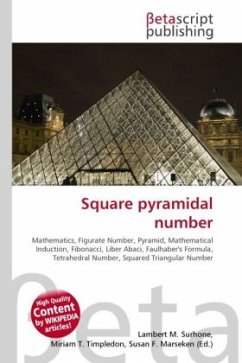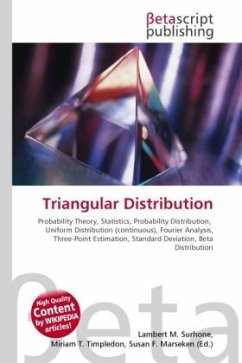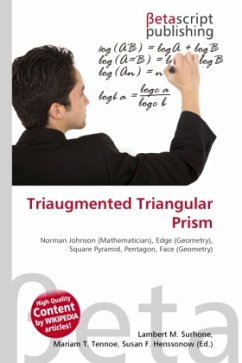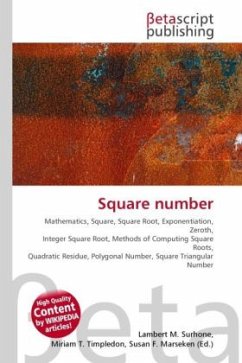
Square Triangular Number
Versandkostenfrei!
Versandfertig in 6-10 Tagen
23,99 €
inkl. MwSt.

PAYBACK Punkte
12 °P sammeln!
Please note that the content of this book primarily consists of articles available from Wikipedia or other free sources online. In mathematics, a square triangular number (or triangular square number) is a number which is both a triangular number and a perfect square. There are an infinite number of square triangular numbers; the first few are 1, 36, 1225, 41616, 1413721, 48024900, 1631432881, 55420693056, 1882672131025 (sequence A001110 in OEIS). In mathematics, a Diophantine equation is an indeterminate polynomial equation that allows the variables to be integers only. Diophantine problems h...
Please note that the content of this book primarily consists of articles available from Wikipedia or other free sources online. In mathematics, a square triangular number (or triangular square number) is a number which is both a triangular number and a perfect square. There are an infinite number of square triangular numbers; the first few are 1, 36, 1225, 41616, 1413721, 48024900, 1631432881, 55420693056, 1882672131025 (sequence A001110 in OEIS). In mathematics, a Diophantine equation is an indeterminate polynomial equation that allows the variables to be integers only. Diophantine problems have fewer equations than unknown variables and involve finding integers that work correctly for all equations. In more technical language, they define an algebraic curve, algebraic surface, or more general object, and ask about the lattice points on it. The word Diophantine refers to the Hellenistic mathematician of the 3rd century, Diophantus of Alexandria, who made a study of such equations and was one of the first mathematicians to introduce symbolism into algebra. The mathematical study of Diophantine problems Diophantus initiated is now called "Diophantine analysis".












